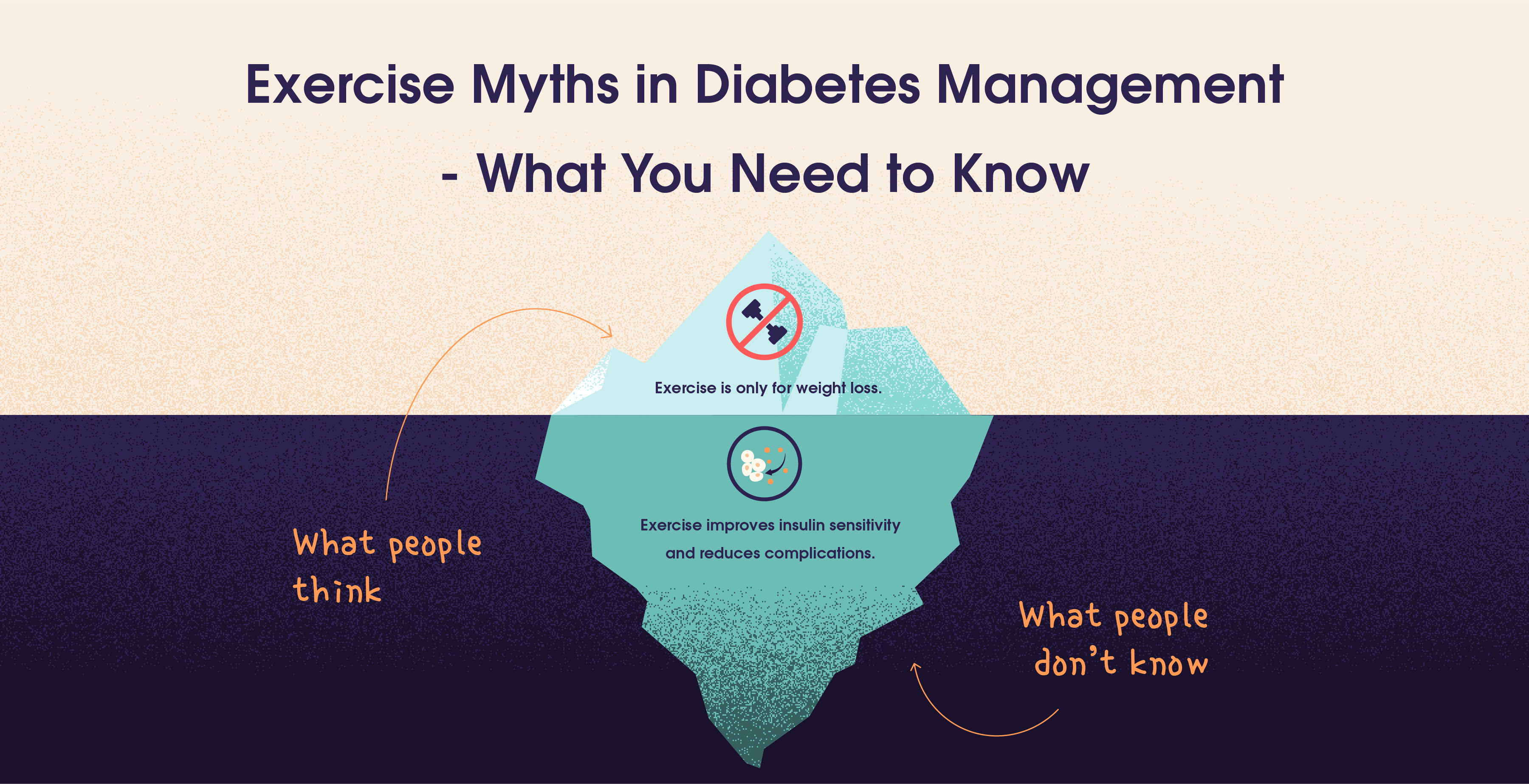Managing Gestational Diabetes
Mar 29, 2024
Ashima Raizada



Table Of Contents
One of the biggest fears for a soon-to-be mum is her blood sugar levels (apart from giving birth itself). A lot of pregnant women we see worry about what gestational diabetes is, how it can impact the baby, and what it means for their future - but hold up! Before you get into a spiral, let's take a step back, look at everything that gestational diabetes is, and see how we can help you manage it with just this blog.
Highlights
GD occurs when pregnant women develop high blood sugar due to insulin resistance, affecting 2% to 10% of U.S. pregnancies annually.
It often shows no clear symptoms, but increased thirst and urination may be signs.
Screening is recommended in the second trimester, with earlier testing for those at higher risk.
Management involves dietary changes, increased physical activity, and ensuring adequate sleep.
Post-delivery, blood sugar levels are monitored closely, with follow-up to assess future diabetes risk.
What is Gestational Diabetes?
Gestational diabetes (GD) is when pregnant women, who've never had diabetes before, find their blood sugar levels soaring. It's not rare either, affecting about 2% to 10% of pregnancies in the U.S. each year. So, what's going on exactly?
During pregnancy, your body is a hormone-producing machine, and these hormones can make your cells less good at letting insulin do its job, which is to help sugar move from your blood into your cells for energy. This condition, where your body isn't using insulin properly, is called insulin resistance. Because of this, your body needs more insulin. But if your pancreas can't keep up and make enough insulin to handle the higher blood sugar levels, that's when GD steps into the picture. The bright side? Once the baby is born, GD usually settles down, with most women's blood sugar levels returning to their pre-pregnancy levels. However, women who have GD are always at a higher risk of type 2 diabetes down the line. (1)
Symptoms of Gestational Diabetes
In most cases, gestational diabetes doesn't show any obvious symptoms. Some women, though, might experience an increased need to drink water and find themselves needing to use the bathroom more often than usual.
Testing for Gestational Diabetes
If your risk for gestational diabetes is considered average, expect a screening test sometime in your second trimester, typically between weeks 24 and 28 of your pregnancy.For those with a higher risk - say, due to being overweight or having a family history of diabetes, or if you've encountered gestational diabetes in a past pregnancy - your healthcare provider might suggest getting tested early on, possibly during your initial prenatal appointment.When it comes to screening for gestational diabetes, the approach might vary slightly based on your healthcare provider but usually involves:
Initial Glucose Challenge Test: You'll consume a sweet glucose solution and, after an hour, undergo a blood test to check your sugar levels. A reading of 190 mg/dL (10.6 mmol/L) or more could mean gestational diabetes. A result under 140 mg/dL (7.8 mmol/L) on this test is generally seen as normal, though standards can differ by clinic. If your levels are higher, you're up for another test to confirm gestational diabetes.
Follow-up Glucose Tolerance Test: This one ups the ante with a sweeter solution and includes blood sugar checks each hour over a three-hour period. If two or more of your readings are above the normal range, a gestational diabetes diagnosis is likely. (2)
Prevention & Treatment
Treating gestational diabetes involves a mix of lifestyle adjustments, diligent blood sugar tracking, and possibly medication to ensure both you and your baby stay healthy. Keeping a close watch on your blood sugar is crucial to sidestep any pregnancy and delivery complications.
Lifestyle Tweaks
Your daily habits, including your diet and physical activity levels, play a pivotal role in regulating your blood sugar. While weight loss isn't recommended during pregnancy due to your baby's nutritional needs, your healthcare provider can guide you on appropriate weight gain based on your pre-pregnancy weight.
Key lifestyle modifications entail:
Eating Well: Embrace a diet filled with fruits, veggies, whole grains, and lean proteins - these are nutrient-rich, high in fiber, but low on fats and sugars, steering clear of refined carbs and sweets. A dietitian or diabetes educator can tailor a meal plan that fits your weight goals, blood sugar levels, activity, preferences, and budget. The general practice is to eat enough fiber and protein and eat it first so that your blood sugar remains stable. (3)
Keeping Active: Exercise is a cornerstone of wellness, beneficial before, during, and after pregnancy. It not only lowers your blood sugar but can also alleviate common pregnancy discomforts like back pain and constipation. With your doctor's approval, aim for 30-60 minutes of moderate activity at least 3 times a week is a must. This includes aerobic and resistance exercises. Walking, cycling, resistance training and swimming are great options. You can also try yoga and meditation for some stress relief and hormone regulation. Household chores and gardening count, too! (4)
Sleep well: Studies have found that women who sleep less are at a higher risk of GD. (5) Improving sleep can be a game-changer in managing or preventing gestational diabetes, primarily because it fine-tunes your body's insulin use. When you get enough rest, your cells become more receptive to insulin, helping to lower blood sugar levels naturally. Plus, a good night's sleep balances hunger hormones, meaning you're less likely to reach for sugary snacks that can spike your glucose. Essentially, better sleep sets up a domino effect: it helps regulate your body's sugar handling, curb unnecessary weight gain, and reduce the risk of developing gestational diabetes, showcasing the power of rest in maintaining metabolic health during pregnancy.
Monitoring Blood Sugar
Expect to monitor your blood sugar closely - typically first thing in the morning and after meals - to ensure it remains within a healthy range. If anything seems off, speak to your doctor before jumping to conclusions.
Medication
Should diet and exercise fall short, insulin injections may be necessary to control your blood sugar. While a few may require insulin, others might be prescribed oral medications, although there's ongoing debate about their efficacy and safety compared to insulin. It's always best to get your doctor's opinion on this.
Watching Over Your Baby
Monitoring your baby's growth and development becomes a part of your care regimen, possibly involving ultrasounds or other tests. If labor doesn't start by your due date, inducing labor might be suggested to avoid risks.
After Delivery
Post-delivery, your blood sugar will be tested to confirm it's back to normal, with a follow-up test 6 to 12 weeks later. Even if normal, you'll need regular diabetes risk assessments moving forward. If future tests show signs of type 2 diabetes or prediabetes, discussing further prevention strategies or a diabetes management plan with your healthcare provider will be essential.
Being Prepared for You Doctor
If you want to be prepared for your doctor's visit, here are some questions your doctor may ask you:
Have you noticed an increase in your thirst or a higher frequency of urination? When did you first observe these changes, and how often do they occur?
Have you observed any other symptoms that seemed unusual to you?
Does anyone in your immediate family, like a parent or sibling, have a history of diabetes?
Have you had any pregnancies before? During those pregnancies, were you diagnosed with gestational diabetes?
Did you experience any complications or issues in your previous pregnancies?
If you have other children, could you share the birth weights of each?
Wrapping Up
In closing, understanding and managing gestational diabetes is all about being proactive - from recognizing the early signs to adopting healthier lifestyle habits and staying vigilant with your blood sugar levels. Embracing a balanced diet, staying active, ensuring quality sleep, and following your healthcare provider's advice can not only help manage gestational diabetes but also set a foundation for a healthy pregnancy and a healthy future for both you and your baby. Remember, it's about taking one step at a time, and with the right support and information, you can navigate this journey confidently. After your baby arrives, continuing to monitor your health is crucial, as it helps in transitioning smoothly post-pregnancy and reduces the risk of future health issues.
References
One of the biggest fears for a soon-to-be mum is her blood sugar levels (apart from giving birth itself). A lot of pregnant women we see worry about what gestational diabetes is, how it can impact the baby, and what it means for their future - but hold up! Before you get into a spiral, let's take a step back, look at everything that gestational diabetes is, and see how we can help you manage it with just this blog.
Highlights
GD occurs when pregnant women develop high blood sugar due to insulin resistance, affecting 2% to 10% of U.S. pregnancies annually.
It often shows no clear symptoms, but increased thirst and urination may be signs.
Screening is recommended in the second trimester, with earlier testing for those at higher risk.
Management involves dietary changes, increased physical activity, and ensuring adequate sleep.
Post-delivery, blood sugar levels are monitored closely, with follow-up to assess future diabetes risk.
What is Gestational Diabetes?
Gestational diabetes (GD) is when pregnant women, who've never had diabetes before, find their blood sugar levels soaring. It's not rare either, affecting about 2% to 10% of pregnancies in the U.S. each year. So, what's going on exactly?
During pregnancy, your body is a hormone-producing machine, and these hormones can make your cells less good at letting insulin do its job, which is to help sugar move from your blood into your cells for energy. This condition, where your body isn't using insulin properly, is called insulin resistance. Because of this, your body needs more insulin. But if your pancreas can't keep up and make enough insulin to handle the higher blood sugar levels, that's when GD steps into the picture. The bright side? Once the baby is born, GD usually settles down, with most women's blood sugar levels returning to their pre-pregnancy levels. However, women who have GD are always at a higher risk of type 2 diabetes down the line. (1)
Symptoms of Gestational Diabetes
In most cases, gestational diabetes doesn't show any obvious symptoms. Some women, though, might experience an increased need to drink water and find themselves needing to use the bathroom more often than usual.
Testing for Gestational Diabetes
If your risk for gestational diabetes is considered average, expect a screening test sometime in your second trimester, typically between weeks 24 and 28 of your pregnancy.For those with a higher risk - say, due to being overweight or having a family history of diabetes, or if you've encountered gestational diabetes in a past pregnancy - your healthcare provider might suggest getting tested early on, possibly during your initial prenatal appointment.When it comes to screening for gestational diabetes, the approach might vary slightly based on your healthcare provider but usually involves:
Initial Glucose Challenge Test: You'll consume a sweet glucose solution and, after an hour, undergo a blood test to check your sugar levels. A reading of 190 mg/dL (10.6 mmol/L) or more could mean gestational diabetes. A result under 140 mg/dL (7.8 mmol/L) on this test is generally seen as normal, though standards can differ by clinic. If your levels are higher, you're up for another test to confirm gestational diabetes.
Follow-up Glucose Tolerance Test: This one ups the ante with a sweeter solution and includes blood sugar checks each hour over a three-hour period. If two or more of your readings are above the normal range, a gestational diabetes diagnosis is likely. (2)
Prevention & Treatment
Treating gestational diabetes involves a mix of lifestyle adjustments, diligent blood sugar tracking, and possibly medication to ensure both you and your baby stay healthy. Keeping a close watch on your blood sugar is crucial to sidestep any pregnancy and delivery complications.
Lifestyle Tweaks
Your daily habits, including your diet and physical activity levels, play a pivotal role in regulating your blood sugar. While weight loss isn't recommended during pregnancy due to your baby's nutritional needs, your healthcare provider can guide you on appropriate weight gain based on your pre-pregnancy weight.
Key lifestyle modifications entail:
Eating Well: Embrace a diet filled with fruits, veggies, whole grains, and lean proteins - these are nutrient-rich, high in fiber, but low on fats and sugars, steering clear of refined carbs and sweets. A dietitian or diabetes educator can tailor a meal plan that fits your weight goals, blood sugar levels, activity, preferences, and budget. The general practice is to eat enough fiber and protein and eat it first so that your blood sugar remains stable. (3)
Keeping Active: Exercise is a cornerstone of wellness, beneficial before, during, and after pregnancy. It not only lowers your blood sugar but can also alleviate common pregnancy discomforts like back pain and constipation. With your doctor's approval, aim for 30-60 minutes of moderate activity at least 3 times a week is a must. This includes aerobic and resistance exercises. Walking, cycling, resistance training and swimming are great options. You can also try yoga and meditation for some stress relief and hormone regulation. Household chores and gardening count, too! (4)
Sleep well: Studies have found that women who sleep less are at a higher risk of GD. (5) Improving sleep can be a game-changer in managing or preventing gestational diabetes, primarily because it fine-tunes your body's insulin use. When you get enough rest, your cells become more receptive to insulin, helping to lower blood sugar levels naturally. Plus, a good night's sleep balances hunger hormones, meaning you're less likely to reach for sugary snacks that can spike your glucose. Essentially, better sleep sets up a domino effect: it helps regulate your body's sugar handling, curb unnecessary weight gain, and reduce the risk of developing gestational diabetes, showcasing the power of rest in maintaining metabolic health during pregnancy.
Monitoring Blood Sugar
Expect to monitor your blood sugar closely - typically first thing in the morning and after meals - to ensure it remains within a healthy range. If anything seems off, speak to your doctor before jumping to conclusions.
Medication
Should diet and exercise fall short, insulin injections may be necessary to control your blood sugar. While a few may require insulin, others might be prescribed oral medications, although there's ongoing debate about their efficacy and safety compared to insulin. It's always best to get your doctor's opinion on this.
Watching Over Your Baby
Monitoring your baby's growth and development becomes a part of your care regimen, possibly involving ultrasounds or other tests. If labor doesn't start by your due date, inducing labor might be suggested to avoid risks.
After Delivery
Post-delivery, your blood sugar will be tested to confirm it's back to normal, with a follow-up test 6 to 12 weeks later. Even if normal, you'll need regular diabetes risk assessments moving forward. If future tests show signs of type 2 diabetes or prediabetes, discussing further prevention strategies or a diabetes management plan with your healthcare provider will be essential.
Being Prepared for You Doctor
If you want to be prepared for your doctor's visit, here are some questions your doctor may ask you:
Have you noticed an increase in your thirst or a higher frequency of urination? When did you first observe these changes, and how often do they occur?
Have you observed any other symptoms that seemed unusual to you?
Does anyone in your immediate family, like a parent or sibling, have a history of diabetes?
Have you had any pregnancies before? During those pregnancies, were you diagnosed with gestational diabetes?
Did you experience any complications or issues in your previous pregnancies?
If you have other children, could you share the birth weights of each?
Wrapping Up
In closing, understanding and managing gestational diabetes is all about being proactive - from recognizing the early signs to adopting healthier lifestyle habits and staying vigilant with your blood sugar levels. Embracing a balanced diet, staying active, ensuring quality sleep, and following your healthcare provider's advice can not only help manage gestational diabetes but also set a foundation for a healthy pregnancy and a healthy future for both you and your baby. Remember, it's about taking one step at a time, and with the right support and information, you can navigate this journey confidently. After your baby arrives, continuing to monitor your health is crucial, as it helps in transitioning smoothly post-pregnancy and reduces the risk of future health issues.
References
Table Of Contents
Table Of Contents
Table Of Contents
Read More


Apr 2, 2025
Sayfali Rawlani


Feb 17, 2025
Aparna Hurtis


Feb 10, 2025
Aparna Hurtis



Company
Copyright © 2025 trst health. All right reserved.

